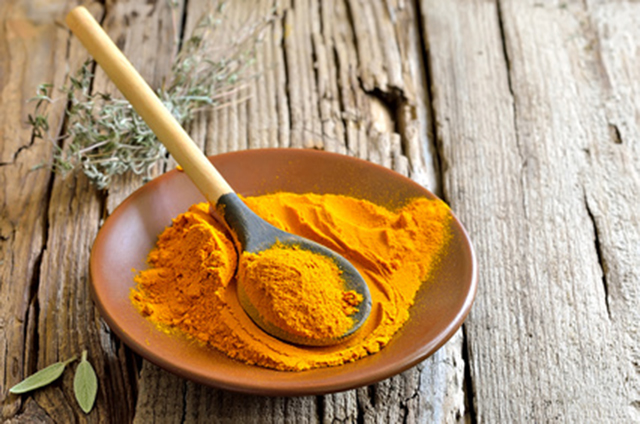Turmeric is one of the most potent healing spices in the world. It is one the most researched plants in the world. There are so many reasons to eat turmeric. The medicinal properties of turmeric have been the subject of over 6000 peer-reviewed and published biomedical studies.
Let’s take a look at 10 reasons to eat turmeric.
1. Brain health:
The antioxidant properties of turmeric may help with brain health. A study published in the Asia Pacific Journal of Clinical Nutrition shows that adding just one gram of turmeric to breakfast could help improve memory of patients in early stages of diabetes and cognitive decline.
2. Helps regenerate brain stem cells:
A study published in the journal Stem Cell Research & Therapy shows that a bioactive compound found in turmeric promotes the regeneration of stem cells in the brain. The findings of this study suggest that aromatic turmerone could be a future treatment for neurological disorders, including Alzheimer’s and stroke.
3. Helps treat arthritis:
Chronic inflammation is one of the biggest risk factors for arthritis. According to the Arthritis Foundation: “Several recent studies show that turmeric/curcumin has anti-inflammatory properties and modifies immune system responses. A 2006 study showed turmeric was more effective at preventing joint inflammation than reducing joint inflammation.” One 2012 study published in the journal Phytotherapy Research showed that curcumin worked better than diclofenac sodium medications in relieving rheumatoid arthritis symptoms. Not only did curcumin work better, but it did not cause side effects.
4. Immune booster:
A team of researchers from Oregon State University conducted a study on turmeric that was published in the Journal of Nutritional Biochemistry. The team found that curcumin activated cathelicidin antimicrobial peptide (CAMP), which is a part of our immune system that detects and identifies harmful bacteria so that it can be killed.
5. Kills multiple myeloma cells:
Multiple myeloma is a cancer of the plasma cells, which is a type of white blood cell in our bone marrow. A study conducted by the Virginia Commonwealth University Massey Cancer Center (VCU) found that turmeric, when combined with the anti-nausea drug thalidomide was able to kill multiple myeloma cells.
6. May help fight cancer:
Curcumin, the active ingredient in turmeric is known as a potent cancer fighter. A study published in Cancer Letters showed that curcumin targeted and killed cancer stem cells, which are believed to be the main cause of tumor formation. Turmeric has even been shown to kill multiple myeloma cells. Curcumin also has anti-inflammatory properties, which means it gets rid of chronic inflammation in the body that is believed to be a major cancer risk factor.
7. May help prevent Alzheimer’s disease:
Alzheimer’s is the most common type of dementia. It causes problems with memory, thinking, and behavior, and gets progressively worse as time goes on, according to the Alzheimer’s Association. Research shows that turmeric reduces inflammation that may cause Alzheimer’s. Studies also show that curcumin, an ingredient in turmeric helps block the formation of amyloid-beta plaques, which are substances known to drive the loss of brain function in Alzheimer’s.
8. Pain reliever:
The powder has anti-inflammatory properties comparable to steroidal and non-steroidal drugs (e.g., aspirin, ibuprofen, naproxen). Turmeric is a great alternative to over the counter pain relieving drugs.
9. Regulates blood sugar:
According to a study from Harbin Medical University in China, patients with type II diabetes who took 300mg of turmeric a day for three months showed significant decreases in blood sugar and insulin resistance than those who took a placebo. It is easy to add to the diet. You can add it to a variety of foods or to your morning tea.
10. Skin health:
Turmeric, the superstar spice can help aid in skin health due to its antioxidant and anti-aging properties. It can help lighten blemishes and get rid of sun spots and age spots. Try our DIY turmeric skin brightener mask.
Note: None of the information in our website is intended to diagnose, treat, cure or prevent any illness or disease. The content on our website is for educational purposes only.
For the health benefits of turmeric.
For a turmeric milk recipe.
New study shows turmeric kills multiple myeloma cells.
REFERENCES:
1. “Aromatic-turmerone Induces Neural Stem Cell Proliferation in Vitro and in Vivo.” Stem Cell Research & Therapy. Stem Cell Research & Therapy, 26 Sept. 2014. Web. 21 May 2015.
2. “The Effect of Curcumin (turmeric) on Alzheimer’s Disease: An Overview.” Annals of Indian Academy of Neurology. Medknow Publications, Spring 2008. Web. 21 May 2015.
3. “What Is Alzheimer’s?” Alzheimer’s Association. Alzheimer’s Association, n.d. Web. 21 May 2015.
4. “A Randomized, Pilot Study to Assess the Efficacy and Safety of Curcumin in Patients with Active Rheumatoid Arthritis.” Wiley Online Library. Phytotherapy Research, 9 Mar. 2012. Web. 21 May 2015.
5. “Supplement Guide: Turmeric.” Arthritis Foundation. Arthritis Foundation, n.d. Web. 03 Apr. 2015.
6. “Targeting Cancer Stem Cells by Curcumin and Clinical Applications.” National Center for Biotechnology Information. U.S. National Library of Medicine, 1 May 2014. Web. 21 May 2015.
7. “Curcumin Induces Human Cathelicidin Antimicrobial Peptide Gene Expression through a Vitamin D Receptor-independent Pathway.” National Center for Biotechnology Information. Journal of Nutritional Biochemistry, 24 May 2013. Web. 21 May 2015.
8. “Turmeric Improves Post-Prandial Working Memory in Pre-Diabetes Independent of Insulin.” Airiti Library. Asia Pacific Journal of Clinical Nutrition, n.d. Web. 21 May 2015.


















Pingback: Rosacea fighting turmeric mask